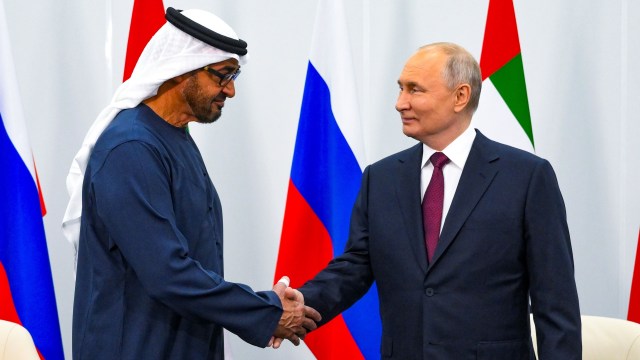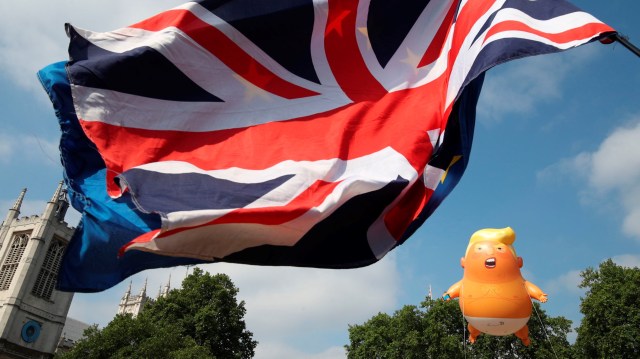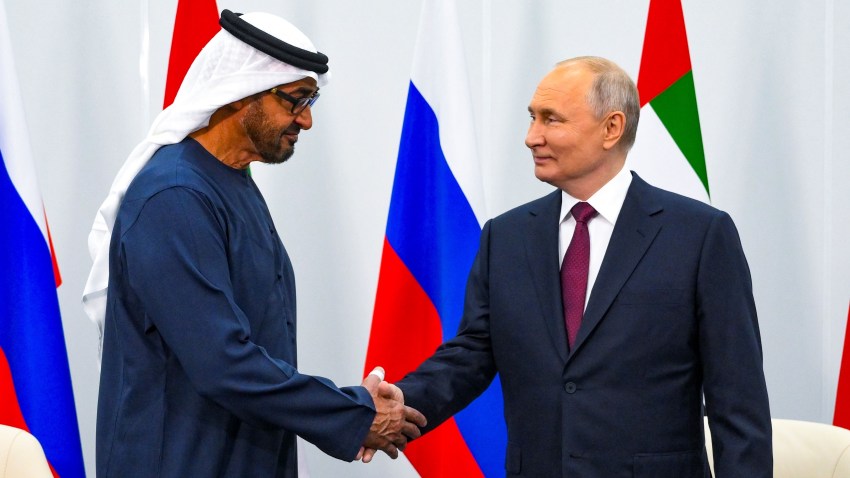Hello, everyone. Today at WPR, we’re covering the UAE’s tightrope walk between the U.S. and Russia, as well as the differences between the sources of Brexit and Trumpism.
Now, here’s our take on today’s top stories:
BRICS summit: On the first day of talks between leaders of BRICS—comprising Brazil, Russia, India, China and South Africa—at this year’s summit in Johannesburg, longstanding divisions reemerged, most notably over the direction the group should take, including the question of potential expansion. (Reuters)
Our Take: As expected, China’s vision—along with Russia’s—for the future of BRICS is one of a group that directly rivals the U.S.-led G-7, which fits into Chinese President Xi Jinping’s larger goal of positioning Beijing, and by extension himself, as the leader of the Global South.
That goal has very much been reinforced so far at the summit. China has been the most vocal proponent in the group for aggressive and accelerated expansion. To be sure, however, any expansion that China favors will be for countries that share Beijing’s vision of a global order no longer dominated by the United States.
Still, while the U.S.-China rivalry may seem to dominate this week’s summit, China is getting a healthy amount of pushback on its vision for BRICS, most notably from Brazil, with President Luiz Inacio Lula da Silva stating that the group should not seek to rival the U.S. or the G-7. And while Brazil and India may have softened their anti-expansion stances, they will still seek to ensure that new members are not exclusively allies of China.
Zimbabwe election: Voting takes place today in Zimbabwe’s second election since the ouster of longtime ruler Robert Mugabe in a coup in 2017. Incumbent President Emmerson Mnangagwa is a strong favorite to win, despite having little to show from his first full term in office. (AP)
More context from WPR: Simon Allison on how a disunited opposition, voter apathy and state coercion have paved the way to victory for Mnangagwa in today’s election.

The war in Ukraine has continued to test nations’ global allegiances, and the countries of the Gulf Cooperation Council significantly embody this trend. In particular, the United Arab Emirates has worked proactively to embrace Russian business while hoping to evade pressure from the U.S. and its Western partners.

The UAE Is Testing Washington’s Red Lines on Russia
The war in Ukraine has continued to test nations’ global allegiances, and the countries of the Gulf Cooperation Council significantly embody this trend. In particular, the United Arab Emirates has worked proactively to embrace Russian business while hoping to evade pressure from the U.S. and its Western partners.
Yet amid growing scrutiny over Russian ties, Abu Dhabi may have to adapt. Despite narratives of the UAE and Saudi Arabia drifting from the U.S. orbit, the Gulf states continue to recognize their dependency on U.S. security ties.
As Jonathan Fenton-Harvey writes in today’s briefing: While the UAE has continuously tested the waters of foreign policy autonomy, it is mindful to avoid crossing Washington’s red lines.
The Sources of Brexit and Trumpism Are Not the Same
Since Donald Trump’s shock victory in the 2016 U.S. presidential election many commentators have compared his rise with the victory of the anti-EU Leave campaign in the referendum over the U.K.’s EU membership—aka Brexit—the same year.

It’s true that in both cases, voter groups facing social change were drawn to populist nostalgia. But as columnist Alexander Clarkson argues, these comparisons often ignore deep institutional differences between the societies in which Trumpism and Brexit emerged.

Israel’s government, currently led by far-right nationalists, has pledged to strike at Palestinian assailants amid an increasingly violent year in the occupied West Bank. The pledge follows the killings of three Israelis in two attacks in the West Bank in the last few days, while in the same time frame, two Palestinians were killed during a military raid.
For months, Israel has been dangerously escalating violence in the West Bank with near-nightly raids. As Hugh Lovatt wrote last month, however, instead of stopping Palestinian violence, Israel’s actions have strengthened popular resistance, making a new Palestinian intifada, or uprising, against Israel seem increasingly likely.

The West Bank Is a Powder Keg. Israel’s Raids Could Set It Off
July 14, 2023 | Instead of stopping violence in the West Bank, Israel’s military operations are energizing Palestinian armed groups. Read more.
That’s all for today’s Daily Review.
Have a great day,
Jakob Cansler
More From WPR
- Simon Allison on Zimbabwe’s elections.
- Richard Gowan on the coming month’s high-level summits.
- James Bosworth on Latin America’s anti-incumbent streak.
- Jamie Hitchen on Sierra Leone’s contested election.

